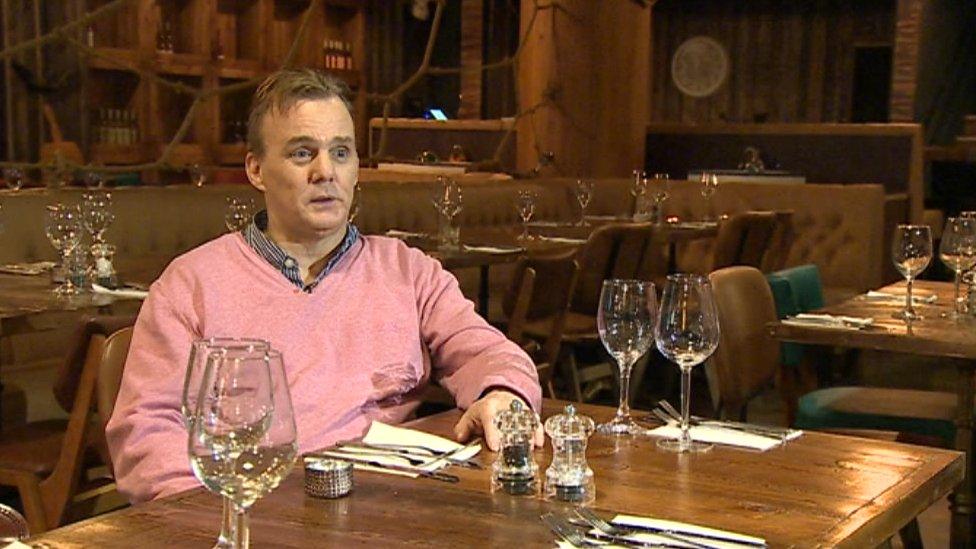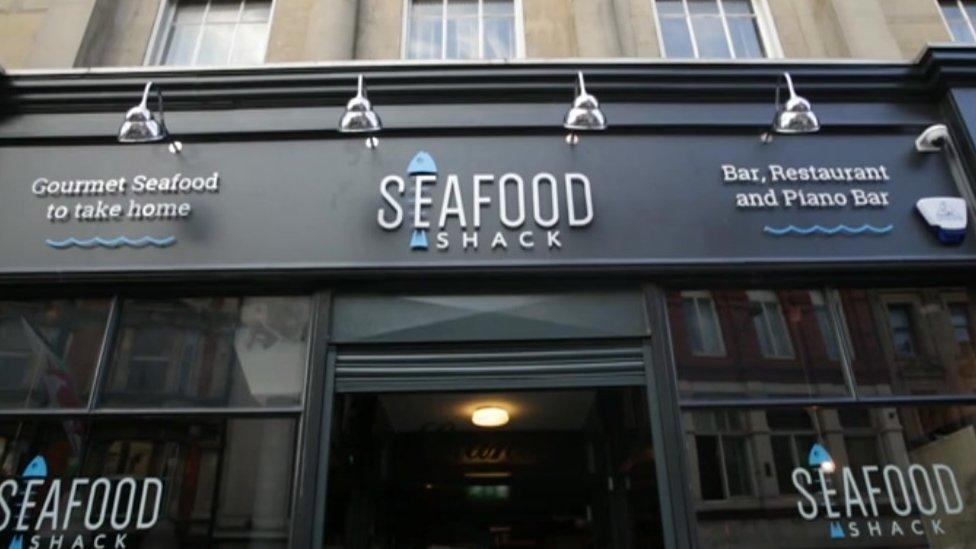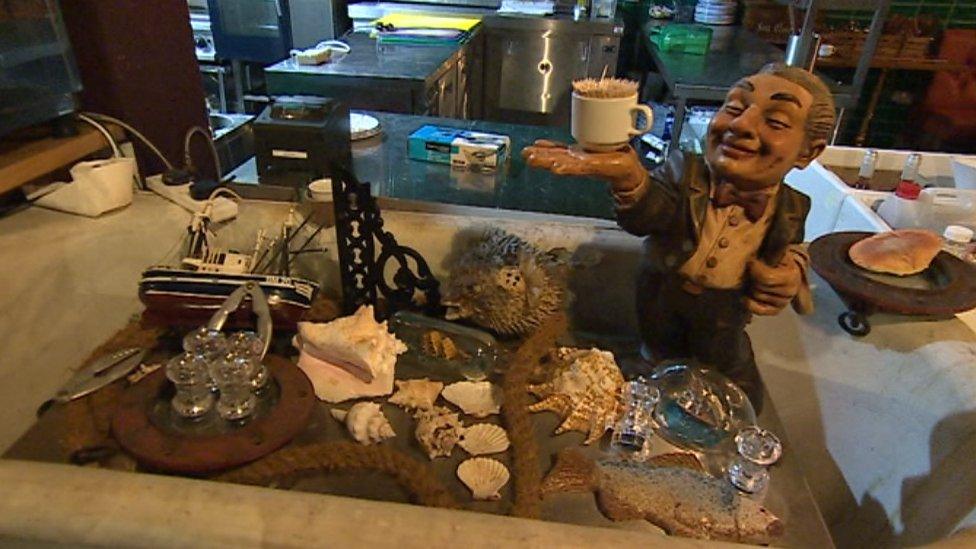Questions over Cardiff Seafood Shack restaurant closure
- Published

Darryl Kavanagh set up the Seafood Shack restaurant in Cardiff's High Street last year
A Cardiff restaurant which reportedly closed after a cyber attack in December may have become insolvent two months earlier, it has been claimed.
The Seafood Shack shut on 29 December, six months after it opened, blaming a "malicious internal" attack and then the loss of its alcohol licence.
The firm consulted insolvency experts in October but a director has denied continuing to trade while insolvent.
Staff and suppliers are owed money, and a creditors meeting is due to be held.
Darryl Kavanagh, one of the four company directors and the majority shareholder, said in a Facebook post on 30 December that "a malicious internal cyber attack" had resulted in their online booking system being hacked and table reservations deleted, costing the business as much as £100,000.
The attack was reported to Action Fraud 10 days earlier, which referred the allegation to South Wales Police at the beginning of January.

Mr Kavanagh, from Waterford, Ireland, who has several failed companies, told BBC Wales the "attack" was followed by another director withdrawing the restaurant's alcohol licence and resulted in its closure.
However, lawyers for one creditor have questioned whether the company continued trading in the knowledge it was insolvent.
Celtic Coast Fish Company, an arm of Llanelli-based Castell Howell, is owed more than £24,000.
A spokeswoman for its solicitors, Red Kite Law, said she knew one of the directors of the Seafood Shack met with an insolvency firm McAlister and Co on 19 October and the restaurant went into liquidation on 2 January.
"We are aware that the Seafood Shack (Cardiff) Limited continued trading during the autumn internationals and over the festive period," said the spokeswoman.
"Questions really need to be asked as to whether the Seafood Shack… continued to trade… when they knew that the company was insolvent and also whether some creditors have been preferred over others."
Mr Kavanagh has denied trading while insolvent and claimed that he did not agree with liquidating the company, in opposition to his fellow directors when they voted late last year.
He added that his meeting with insolvency practitioners McAlister and Co in October was "part of taking advice".

Darryl Kavanagh fact file
Associated with more than 30 businesses - mostly in the Irish bar and nightclub industry including some of Ireland's most popular nightspots
Owned numerous properties including 12 holiday homes
His fortunes changed when the Irish economy crashed, leaving him with significant debts
Moved to the United States in 2013 and filed for bankruptcy with debts of about 20m euros to creditors including Bank of Ireland, Danske Bank and Bank of Scotland and Ireland
Declared bankrupt in New York but was discharged through a clause in US bankruptcy law
The Irish taxpayer picked up the remaining debt of 17m euros after his assets were realised
He is serving a five-year ban on becoming a company director in Ireland

Asked at what point he realised the business was insolvent, he said: "Well, nobody's ever told us we were insolvent.
"There was a directors' meeting called and the rest of the directors voted to liquidate the company and I asked 'on the basis of what?'
"It's not that we weren't paying our debts, there were some companies who were owed some money and we were trying to work through the bigger ones, but the current debts were being paid.
"Nobody with the credentials to tell us that we were insolvent told me we were insolvent… there has been no experienced financial person that has looked at this business and said we were insolvent.
"If you're asking me could we pay all our debts in one day, no we could not, but any spare money that was there was used to pay who we could."
The other company directors and McAlister and Co have been asked to respond.
